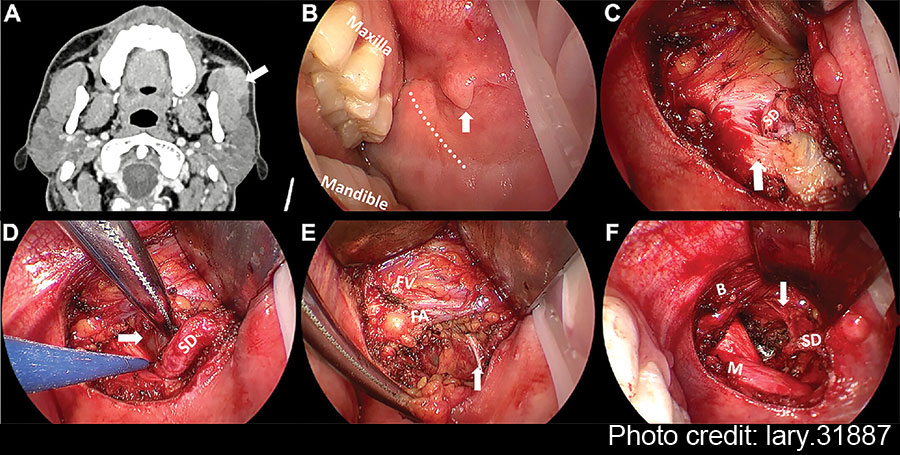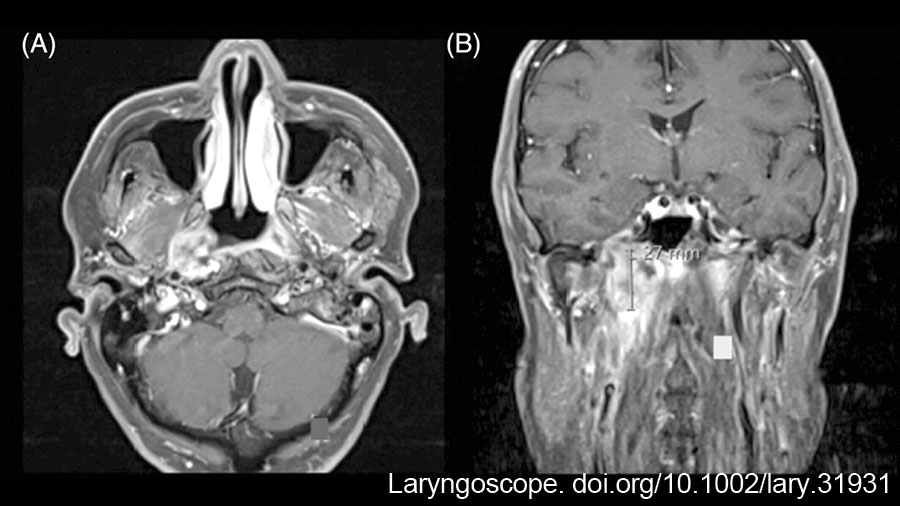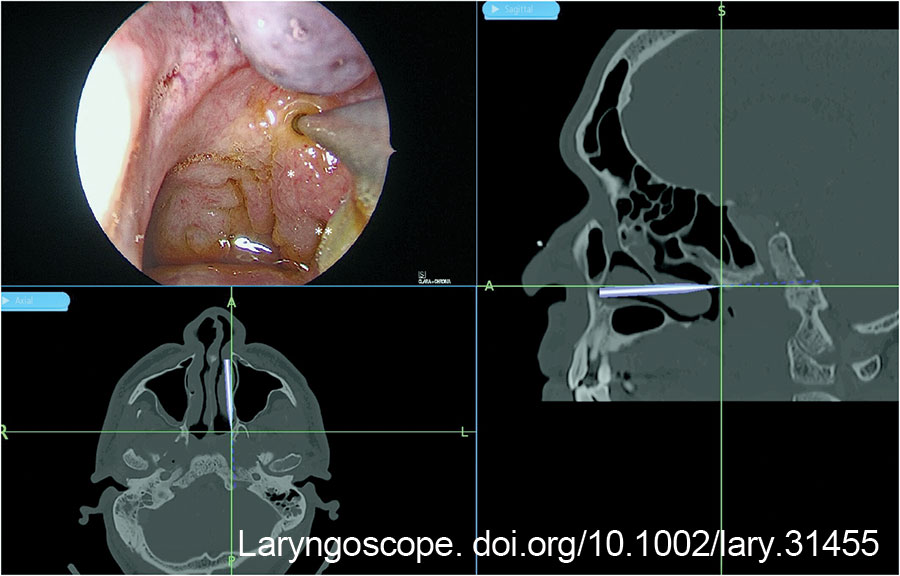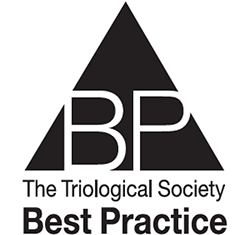Pediatric patients with DTC who are younger than 11 years at diagnosis have more aggressive disease features and a lower early remission rate than older patients, although their long-term outcome is satisfactory.

How To: Endoscope-Assisted Transoral Procedure of Accessory Parotid Gland Tumor Resection
This article aimed to present the authors’ experiences with endoscopic-assisted transoral resection of APG tumor and to describe the surgical procedure involved.

How To: Tunneled Submental Island Flap for Reconstruction of Endoscopic Nasopharyngectomy Defects
Endoscopic nasopharyngectomy in the context of recurrent nasopharyngeal carcinoma may require reconstruction with strongly vascularized flaps. This is fundamental to address the volumetric deficit and prevent complications such as carotid blowout syndrome. The submental island flap is well suited for this purpose.
NECTORS and Dissection Compares Favorably to CCRT in Patients with HPV-Related Oropharyngeal Squamous Cell Carcinoma
How effective is neoadjuvant chemotherapy followed by transoral robotic surgery (NECTORS) and neck dissection compared with standard-of-care concurrent chemoradiation (CCRT) in patients with human papillomavirus (HPV)-related oropharyngeal squamous cell carcinoma (OPSCC)?

Awareness Fuels Olfactory Advances: Treating and Managing Smell Loss
More than 13 million U.S adults live with measurable smell dysfunction, according to the National Institute on Deafness and Other Communication Disorders.

How To: A Case Report of Transnasal Endoscopic Drainage for Upper Parapharyngeal Abscess
This is a case report of an upper parapharyngeal abscess arising from the progression of a central skull base osteomyelitis in a patient with poorly controlled diabetes mellitus. It’s unusual for its presentation in an upper parapharyngeal location, involvement of the skull base, and poor response to medical treatment, hence requiring transnasal endoscopic surgical drainage to achieve definitive treatment.

Current Indications for Surgical Intervention with Lateral Skull Base Osteomyelitis
Over the past few decades, a transition toward culture-directed antibiotics has shifted the treatment paradigm of SBO toward primary medical management, with mortality rates now decreasing to 10-20% compared to 50% initially.

Is There a Role for Holistic Medicine in Otolaryngology–Head and Neck Surgery?
There are some ethical considerations in using a holistic approach to otolaryngology care, including privacy issues, inappropriate lifestyle interventions for a given patient, autonomy and informed consent, and cultural sensitivities.
Medicaid Expansion Associated with Improved Survival of Head and Neck Cancer
How does stage at presentation and survival compare when looking at cases of head and neck squamous cell carcinoma in Medicaid-expanded states versus non-expanded states?

How To: Prelacrimal–Transmaxillary Approach to Lateral Sphenoid Recess Skull Base Defects
This study describes a prelacrimal–transpterygoid/maxillary approach that offers direct access to this region with a 0° endoscope.
- « Previous Page
- 1
- 2
- 3
- 4
- …
- 43
- Next Page »